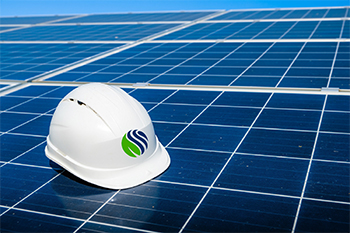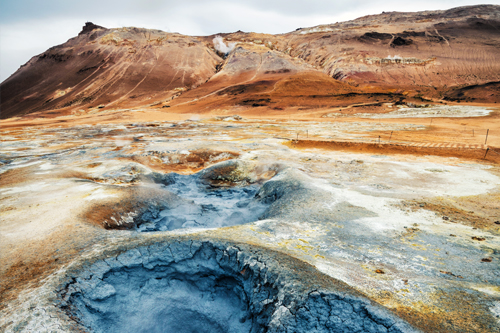
- Home
- /
- Solar Technologies
SOLAR TECHNOLOGIES
Solar energy systems do not produce air pollutants or carbon dioxide
We use solar thermal energy systems to heat water for use in homes, buildings, or swimming pools, the inside of homes, greenhouses, and other buildings fluids to high temperatures in solar thermal power plants.
Solar photovoltaic systems convert sunlight into electricity solar photovoltaic (PV) devices, or solar cells, change sunlight directly into electricity. Small PV cells can power calculators, watches, and other small electronic devices. Arrangements of many solar cells in PV panels and arrangements of multiple PV panels in PV arrays can produce electricity for an entire house. Some PV power plants have large arrays that cover many acres to produce electricity for thousands of homes.
Solar energy has benefits and some limitations
The two main benefits of using solar energy:
Solar energy systems do not produce air pollutants or carbon dioxide.
Solar energy systems on buildings have minimal effects on the environment.
The main limitations of solar energy:
The amount of sunlight that arrives at the earth’s surface is not constant. The amount of sunlight varies depending on location, time of day, season of the year, and weather conditions. The amount of sunlight reaching a square foot of the earth’s surface is relatively small, so a large surface area is necessary to absorb or collect a useful amount of energy.

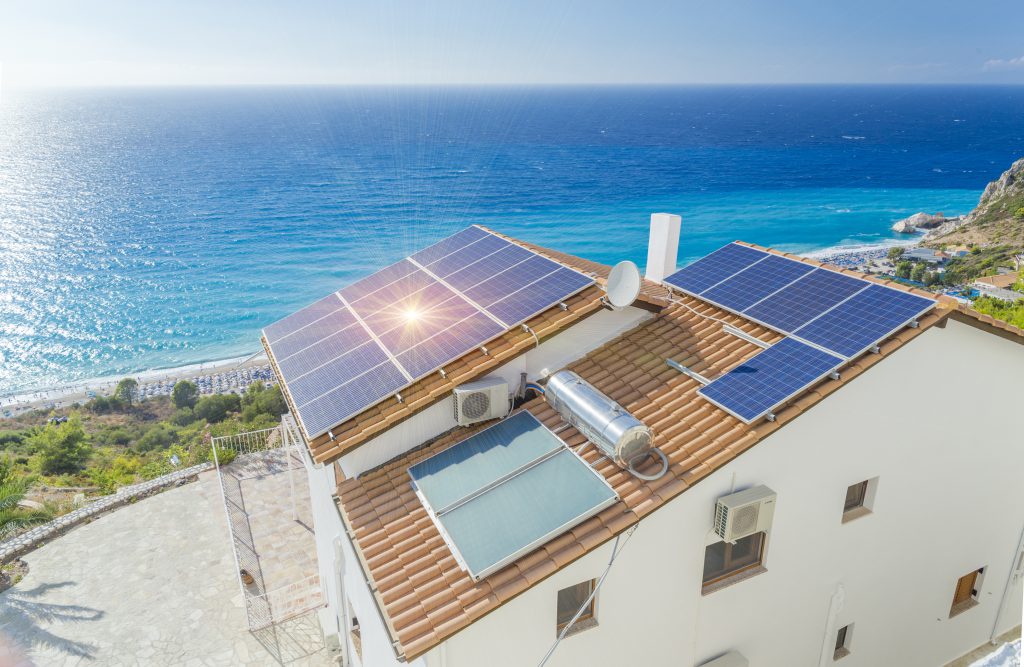
The amount of sunlight that arrives at the earth’s surface is not constant. The amount of sunlight varies depending on location, time of day, the season of the year, and weather conditions.
The amount of sunlight reaching a square foot of the earth’s surface is relatively small, so a large surface area is necessary to absorb or collect a useful amount of energy.
Solar power is pollution-free and causes no greenhouse gases to be emitted after installation. Reduced dependence on foreign oil and fossil fuels. Renewable clean power that is available every day of the year, even cloudy days produce some power.
Solar energy is an alternative for fossil fuels as it is a non-polluting, clean, reliable and renewable source of energy. It does not pollute the air by releasing harmful gases like carbon dioxide, nitrogen oxide or sulphur oxide. So, the risk of damage to the environment is reduced.
In discussions of renewable energy, solar energy is a trending topic. While often criticized as costly and ineffective, the best solar systems are now emerging as very advantageous—for the earth as well as the owner’s wallet. Solar energy is transforming into an extremely effective source of clean energy.
Solar Energy systems are also becoming more and more widespread because of their obvious benefits; however, many people think systems for creating solar power are costly. Let’s weigh the benefits and liabilities of solar energy.
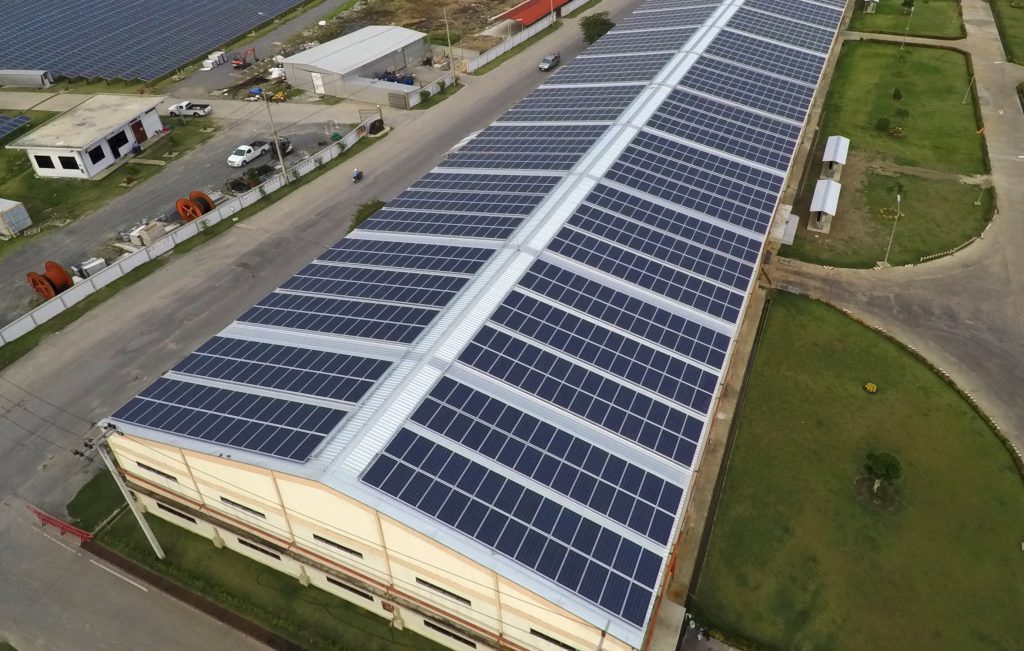
Solar power is pollution-free and causes no greenhouse gases to be emitted
Solar Energy—Overview
Solar energy is the cleanest and most abundant renewable energy source available, and the U.S. has some of the richest solar resources on the planet. Modern technology can harness this energy for myriad uses, which include generating electricity, providing light or a more comfortable interior environment, and warming water for personal, commercial, or industrial use.
Where Does Solar Energy Originate?
The answer to that question is very easy: It originates from the radiation of the sun. There’s little uncertainty about how effective the sun is as an energy source. In fact, just one hour of the sun’s energy could actually meet the world’s energy needs for a year. Right now, only 0.001 percent of the sun’s energy is being harnessed. Of course, there are pros and cons to using solar energy. Let’s start with the advantages.
Advantages of Solar Power
Solar energy is an immaculate and renewable energy source.
Once a solar panel is installed, solar energy can be produced free of charge.
Solar energy will last forever while it is estimated that the world’s oil supply will run out in 30 or 40 years.
Solar energy causes no pollution.
Solar cells create no negative impact at all. On the other hand, the giant machines that pump oil are noisy polluters, and therefore very unfeasible.
Almost no maintenance is required to keep solar cells running. There are no moving parts in solar cells, making it difficult to harm them.
In the long term, there can be a high return on an initial investment because of the amount of free energy a solar panel can produce; it is estimated that the normal family can generate half of its energy from solar panels.
Disadvantages of Solar Energy
As with all renewable energy sources, solar energy has regularity issues; the sun does not shine at night, and during the day there may be clouds or rain.
Therefore, the indeterminacy and idiosyncrasies of solar energy make solar panels a less reliable solution.
Solar panels require additional equipment, like inverters, to convert direct power (DC) to alternating current (AC) for use on the power network.
For a constant supply of electric power, particularly for on-grid connections, photo-voltaic panels require inverters as well as storage batteries, increasing the initial investment for solar power accordingly.
In the case of land-mounted PV panels, moderately large areas are needed; more often than not, the land is available for this use for only 15-20 years.
Solar panel efficiency is generally low (between 14%-25%), in contrast to the higher effectiveness of other renewable energy systems.
In spite of the fact that PV panels require no excessive maintenance or operating costs, they are fragile and can be damaged easily; extra insurance costs are therefore essential to protect a PV investment.
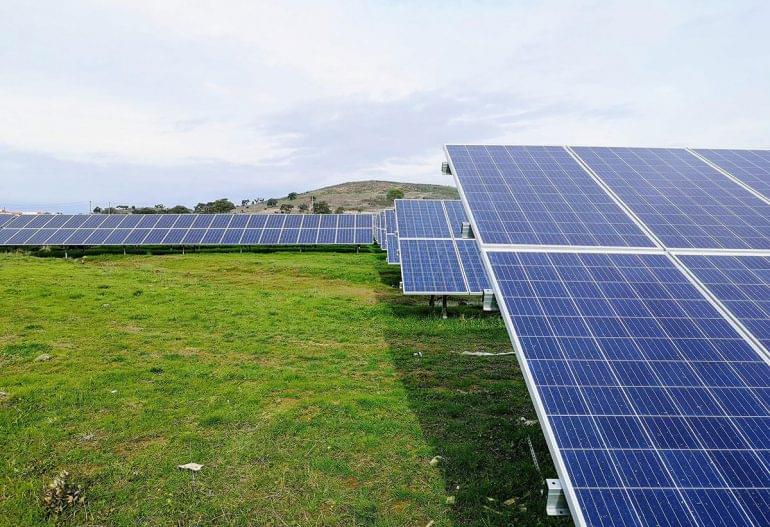
UN Organizations Launch Clean Energy Plan
Against the backdrop of a global energy crisis and worsening climate emergency, today the UN …

iHAT Africa Public Announcement
iHAT AFRICA intends to develop and integration project for poultry production and renewable energy generation in the town ofZalala.
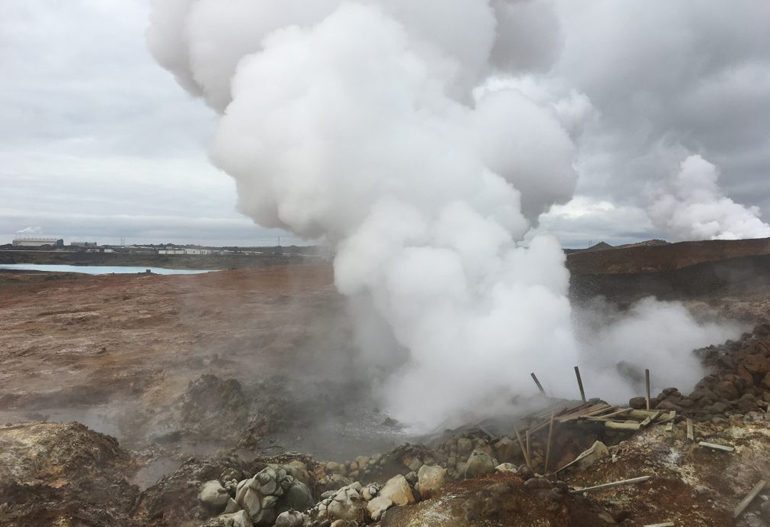
Geothermal Energy Production & Utilisation
Geothermal energy can be found all over the world, how feasible its utilisation is…

‘First-of-its-kind’ study to test geothermal energy
Geothermal is a type of renewable energy taken from heat that comes from the earth’s subsurface, ..
iHAT collects and shares reliable information from various sites including , IREANA International Renewable Energy Agency →












